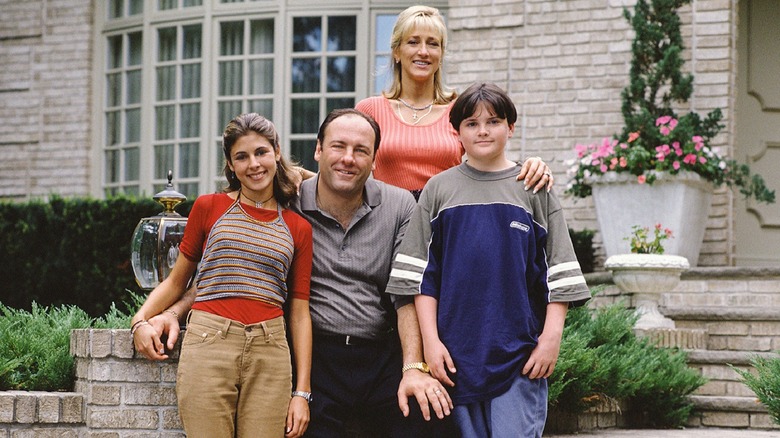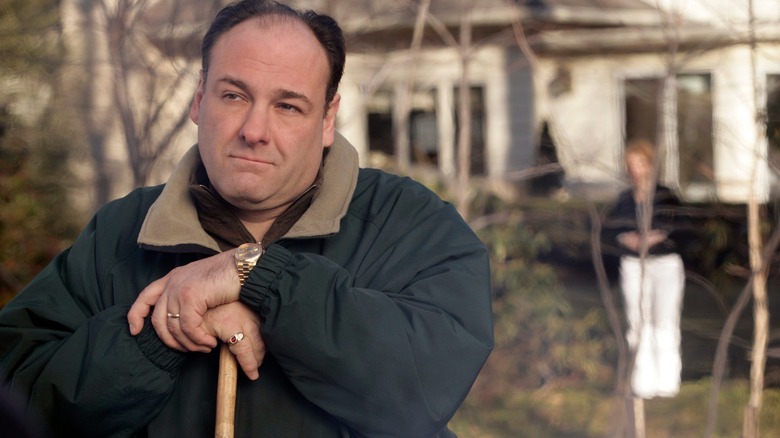The Daily Stream: Come For The Gabagool, Stay For The Existential Dread With The Sopranos
(Welcome to The Daily Stream, an ongoing series in which the /Film team shares what they've been watching, why it's worth checking out, and where you can stream it.)
The Series: "The Sopranos"
Where You Can Stream It: HBO Max
The Pitch: "The Sopranos" has consistently been regarded as one of the landmark moments in television history since its original run on HBO. It offered us an inside look into the mind of a mob boss, or at least a glance inside his life. But, more importantly, it begs the question: Can you ever really know a sociopath? Can you ever truly love one, or care about them in a deep and meaningful way?
We follow Tony Soprano (James Gandolfini) as he navigates his own mental health issues with a longstanding and largely untreated anxiety disorder while also living his daily life as a loving father, a questionably loyal husband, and, well, a mob boss.
Why It's Essential Viewing
I put off watching "The Sopranos" for ... well, until now. I literally just finished the final episode for the first time not a few hours ago. So while it's still very fresh in my mind, I'm also not totally sure how to sell it beyond just saying you have to see it for yourself. It's such a strange amalgam of genres, subgenres, tones, and stylistic choices that there's very little anyone can do to fully brace for it.
I, for one, was not prepared for how funny it would be. From the very first episode, I found myself laughing big, full-bellied laughs. That humor runs the entirety of the series, but it fades over time, gradually warping into something darker, something more sinister. It's there, and out of context it might still have the same impact, except with the context of having moved through the world in sequence, it quickly becomes tragic.
There are elements of the show that directly reflect "Pagliacci," only warped into something much darker, with a drastically different payoff. In many ways, it's as if we're watching "Pagliacci" repeat itself, ongoing performances with different players in the same roles and slightly varied settings. In a purgatorial loop. On top of this, Tony perceives himself as the sad clown, a reference to the sad clown paradox whereby comedians frequently try to work through the absurdity of life and their place in the liminal process of existence by making others laugh. Except Tony doesn't make others laugh when he's struggling with the absurdity or the fragility of life. Quite the opposite, as you'll come to recognize.
The whole world of "The Sopranos" is a brilliantly topsy-turvy exercise in expectation, from its premise to the most complex aspects of its execution. On the surface, it presents itself as a straightforward gangster show. But as you get closer, falling farther into the world, you realize how much more there is. "There were people who just wanted a mob show," David Chase told The New York Times in 2019, "and their motto was 'less yacking, more whacking.' And when I would read things like that, it would only make me do more yacking."
There's not much else I can say that will make much sense, and that's probably a good thing. You really just have to see it.

